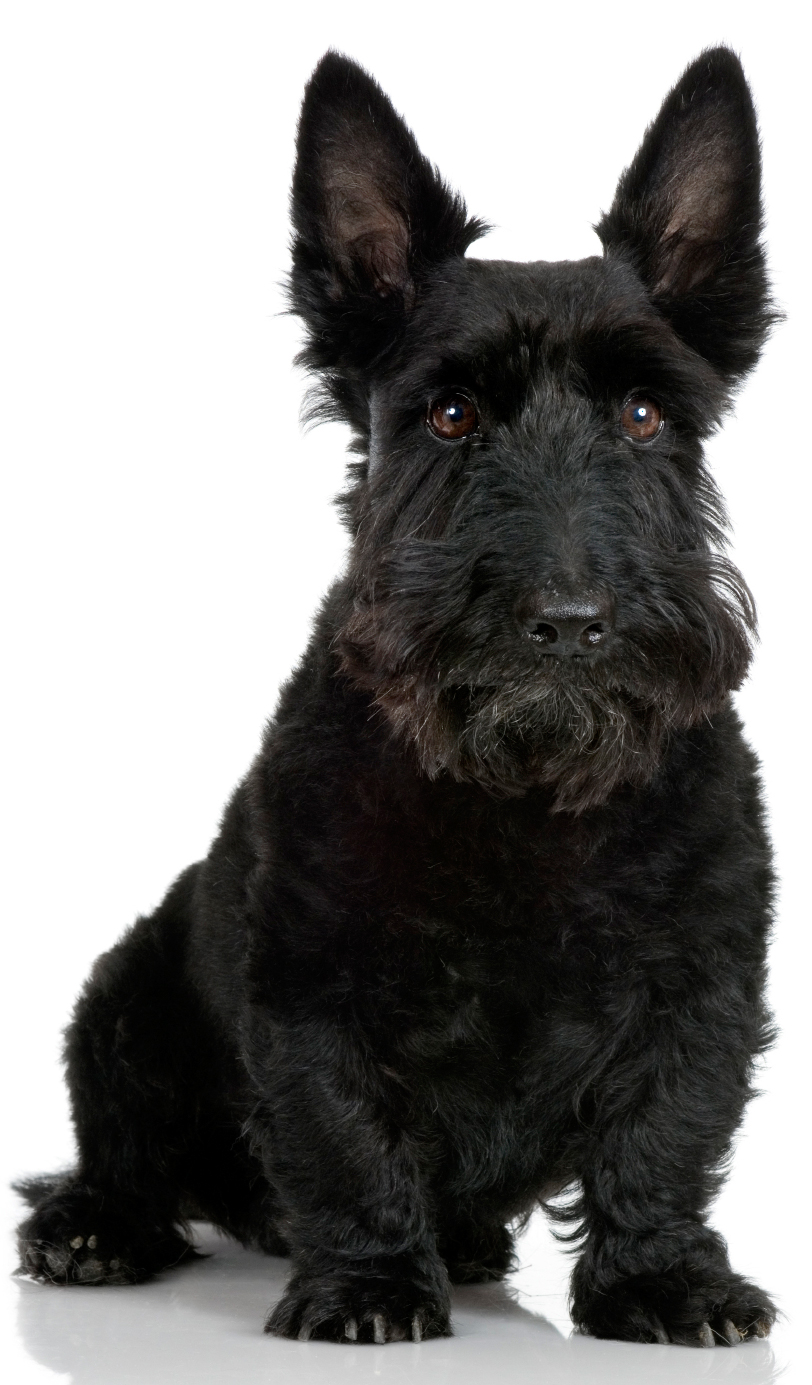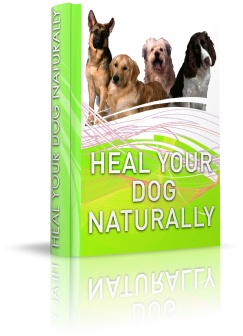Dog Naturopath: Obesity in Pets – Is Your Dog or Cat Too Fat?
December 29, 2011 by admin
Filed under Dog Food, Natural Animal Health, Uncategorized
Dog Naturopath: Obesity in dogs and cats is increasing rapidly in line with the obesity epidemic in humans.
As a dog naturopath, I find the most common cause of obesity in dogs is caused by feeding your pet a commercial diet. Canned foods and dry foods are usually high in carbohydrates (especially the latter) and a high carbohydrate diet can cause weight gain in pets and is also far removed from their natural diet.
The dog naturopath philosophy is that foods that have been processed, heated, or manufactured using any artificial methods do not resemble the natural diet of dogs and can result in disease. This is one of the topics I discuss in my ebook ‘Heal Your Dog Naturally’ (www.HealYourDogNaturally.com ) as I feel it is such an important part of a dogs long-term health and disease prevention, and I include a natural diet for dogs and a large amount of other relevant information to help prevent illness in your dog so they can live a long, happy and healthy life.
The article below illustrates that some veterinarians also believe that feeding dry food leads to obesity in pets:
Extra pounds can weigh heavily on animal’s health
Kellie B. Gormly PittsburghTribune-Review 27.12.11
“In certain humorous poses, Murphy the cat resembles Jabba the Hutt from “Star Wars,” his owner says.
But Murphy, a tabby, is a lovable, adorable 21-pounder, who has lost two pounds since his heaviest weigh-in, Morgan Turner says. She adopted Murphy when he was a little kitten, and though it looked like he was a big-boned cat with a large, long frame, the kitty started bulking up with fat after his first year. She and her husband, Jim, aren’t sure why Murphy is so hefty, but he otherwise seems healthy: He runs around, wrestles with his normal-size brother, Charlie, and loves to play. They joke that Murphy’s father was a mountain lion.
“People comment on it all the time. They call him Big Chunk, Big Love and Big Snack,” says Morgan Turner, 30, of Springdale. When Murphy launches himself from the floor onto her lap, he sometimes leaves a bruise. A pudgy puss like Murphy may look cute, but its weight may threaten its health, according to the Association for Pet Obesity Prevention. An estimated 54 percent of cats and dogs in the United States — about 93 million animals — are considered overweight or obese, according to the association’s 2010 figures. About 21 percent of American cats and dogs — 36 million pets — have crossed into the obese category.
Obesity cuts short many cats’ and dogs’ lives. Their condition costs owners huge vet bills that could be prevented if the pet were a healthy weight, says Dr. Ernie Ward, a veterinarian and founder of the association. “In 2005, this was really a comical topic — that fat cats are happy cats,” says Ward. His association is based at one of his clinics in Calabash, N.C. “We’re very grateful and certainly pleased that we’ve pushed this issue beyond a fun, fluffy piece to the serious medical issue that it really is.”
Pets’ waistlines seem to be expanding along with people’s, Ward says.
“Obesity is the biggest health threat that people face today,” he says. “It’s interesting how it mirrors the human issues. … We just simply exported our weight problem’s to man’s best friend.”
Dr. Frederick Schuler — a veterinarian with Valley Veterinary Associates in Lower Burrell — agrees.
“We talk about it to people every single day,” he says. “It really is a problem.”
Sometimes, when a pudgy pet is extra cuddly and cute, it’s hard for owners to see excess weight as a problem, Schuler says.
“Pets give you unconditional love,” he says. “How can they not be beautiful regardless of what their size is?”
Some wonder why the big fuss over few extra pounds. But look at it proportionally. Two extra pounds on a human is nothing, but on a 12-pound cat, that’s 20 percent of its body weight.
Some pets successfully drop pounds and lick the weight problem. Rosemary McGee, a retired Peters resident, successfully guided her mixed-breed female dog, Sayla, through a weight loss of 11.7 pounds. At her heaviest, Sayla, who is about 6, weighed roughly 76 pounds.
The weight problem appeared to come from commercial pet food. McGee saw a recipe for homemade dog food made out of chicken, rice and vegetables, and started cooking it. Sayla lost weight over a period of about four months, eating two 8-ounce servings of the homemade food each day. McGee makes enough for about 50 servings at a time, and freezes the bags until she is ready to feed them to the dog.
“One day, I looked at her and thought … ‘Geez, she really does look a lot thinner,'” McGee says. “We’re very pleased. It’s all the food. She seems happy, and she doesn’t seem lethargic.”
Other pets’ weight stays stagnant. Take Chunk — a 5-year-old, 15-pound tabby originally named Jasmine.
“I have a cat that’s let herself go,” says owner Andrea Longman, 42, of the West End.
Chunk gets free-fed dry food, which is the only system that works because Longman is gone from home so often — either traveling or pet-sitting through her business, Steel City Pet Sitters. Chunk’s littermate, Duncan, gets the same food, but is trim. Longman’s vet has recommended some diet foods, but they are expensive. Longman is looking into getting timed feeders to help control Chunk’s eating.
Though chubby, Chunk is adorable and “as happy as can be,” Longman says.
“How can you not like her at that size?” she says. “She’s like one of those bean bag pillows — so cuddly.”
Colleen Robinson — owner of Academy of the Wagging Tail, a pet-grooming salon in Greensburg — sees many overweight pets, and they often require special attention for grooming. Sometimes, the heavy dogs require a longer session because they had a hard time standing on the table. The older obese dogs, especially, often need a second person to help them stand up for grooming. Sometimes, Robinson needs to remove heavy dogs from the table and let them lie down on the floor. Some dogs need to use a walk-in shower to be bathed.
“Too many dog treats, probably,” Robinson says as a reason for their chubbiness.
Veterinarians say that, with few exceptions, pets become overweight mostly for the same reasons we do:
They consume too many calories and burn too few. A combination of too much food and too little exercise usually is the culprit of weight issues, Schuler and Ward say. In maybe 5 percent of cases, Schuler says, it may be just a genetic or medical condition. With dogs, owners can take them on more and longer walks, and adjust the canines’ diet.
Cats, being natural carnivores, get exercise by indulging in their predatory instincts during brief bursts of energy. They can stalk and chase toys or laser pointers. Without these kinds of outlets, cats can become frustrated, and anxiety can lead to overeating, Ward says.
Free-feeding unlimited amounts of dry food often leads to weight gain, and in a multipet household, someone often is a bowl hog, Ward and Schuler say. Owners can avoid this with set feeding times. Sometimes, food is very calorie-dense — 400 or more calories per cup.
Just like with people, losing weight isn’t easy for a pet, but it can be done, Schuler says.
“If you stick with it, you’ll get … a happier, healthier pet,” he says.
Is your pet overweight?
Your pet is a healthy weight if:
• You can easily feel its ribs.
• It has a tucked abdomen, with no sagging stomach.
• When you view your pet from above, you can see its waist.
Your pet is overweight if:
• It’s difficult to feel the ribs under the fat.
• It has a sagging stomach and you can grab a handful of fat.
• It has a broad, flat back.
• It has no waist.
Source: Association for Pet Obesity Prevention
Please consult a qualified animal naturopath for advice about nutritionally-balanced diets and naturopathic medicines for the treatment of animals.
Yours In Great Health,
Sar Rooney BHSc., DC., ND., DASc., GDSc. (Hons) Zoology, MHATO, MATMS
Naturopathic Practitioner, Researcher, Lecturer, Canine Naturopath
Science-Based Naturopathy for Canine Wellbeing
Canine naturopathic health care with a clinical focus on skin conditions, inflammatory bowel disorders, chronic infections, arthritis and disease prevention.
Helping dogs achieve optimal wellness with personalised, professional naturopathic health care and individually-prescribed high-quality herbal medicines and supplements
Naturopathic Animal Services W: www.animalnaturopath.com.au E: [email protected] FB: http://www.facebook.com/DogNaturopath
Appointments are available by email, phone & skype
Want to keep up to date on the latest in dog health? Join me on Facebook:http://www.facebook.com/DogNaturopath
Disclaimer: The information provided is not intended to replace any veterinary or medical advice or treatment.


